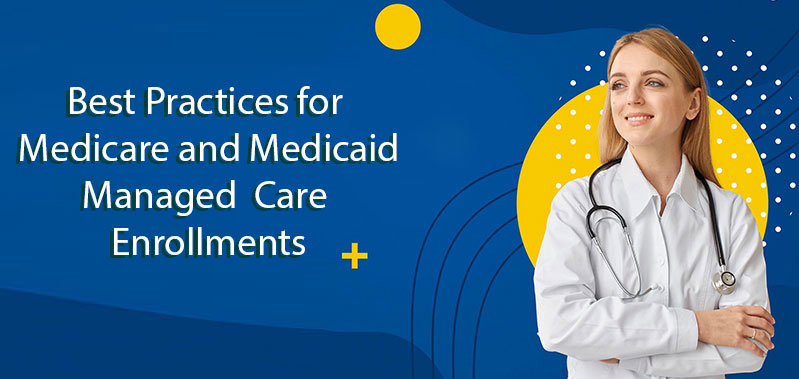
Best Practices for Medicare and Medicaid Managed Care Enrollments
Managed care programs for Medicare and Medicaid account for millions of Americans who get healthcare services delivered to them. These programs not only help deliver quality care for the beneficiaries but also ensure control over healthcare spending. The processes of enrollment under these programs often prove complex and confusing for most individuals and healthcare providers. A best practice-based approach would easily simplify the processes and ensure one's compliance with the rules and regulations in place.
1. Understanding Enrollment Requirements
One would need to learn the eligibility rules for Medicare and Medicaid managed care enrollments very well. While each state's rules may vary, knowing about federal and specific state guidelines assists in avoiding making mistakes during enrollment. Knowing the difference between Medicare Advantage and Medicaid managed care plans will guide providers in talking to their patients.
2. Ensuring Accurate Documentation
A successful enrollment process relies heavily on accurate and full paperwork. Missing or erroneous information might result in delays or denials, reducing the beneficiary's access to care. To ensure that program standards are met, providers and enrollment coordinators should check all personal, financial, and medical information prior to submission.
3. Leveraging Technology for Efficiency
Technology can help to streamline the enrollment process. Electronic health records, automated eligibility verification systems, and online enrollment platforms reduce the likelihood of human mistakes while increasing efficiency. Real-time updates ensure that both the beneficiary and the provider are constantly aware of their enrollment status.
4. Providing Clear Communication and Support
Clear and transparent communication with the beneficiary is essential to ensure a smooth enrollment process. Many people are overwhelmed by the complexity of managed care plans. Providing personalized support, educational materials, and access to support teams will help them better understand their choices and make better decisions about their health care.
5. Training and Educating Staff
The best staff members would be very crucial for providers when handling enrollments properly. Training the team on regular updates in regulation, enrollment, and compliance can ensure that they are able to process the correct information. Such an informed team is also better at handling beneficiary inquiries and complaints.
6. Regular Monitoring and Auditing
Organizations must, therefore, monitor and audit enrollment practices to ensure compliance and minimize the possibility of errors. This proactive approach allows for the detection and resolution of issues early on to ensure a seamless enrollment process. Audits may also reveal patterns that could suggest systemic problems and thus offer the opportunity for improvement.
7. Collaboration with Stakeholders
Medicare and Medicaid managed care enrollments need to be successful while working together with payers, government agencies, and healthcare providers. Regular communication and coordination help solve discrepancies, bring expectations in line, and thereby increase the efficiency of the entire system.
8. Staying Compliant with Regulations
Medicare and Medicaid managed care enrollments do not include disputes over federal or state laws. Providers' policies should be reviewed and changed as needed to ensure regulatory compliance. Noncompliance may result in penalties, delays, or disqualification from the program. Providers must thus prioritize regulatory compliance.
Conclusion
Efficient and accurate Medicare and Medicaid managed care enrollments help both patients and providers by guaranteeing consistent access to high-quality healthcare services. Best practices, such as using technology, maintaining clear communication with stakeholders, and prioritizing compliance in all talks, help stakeholders traverse the intricacies of these programs efficiently. With the transition of health systems, a proactive strategy will remain critical in all aspects of managed care enrollment.




